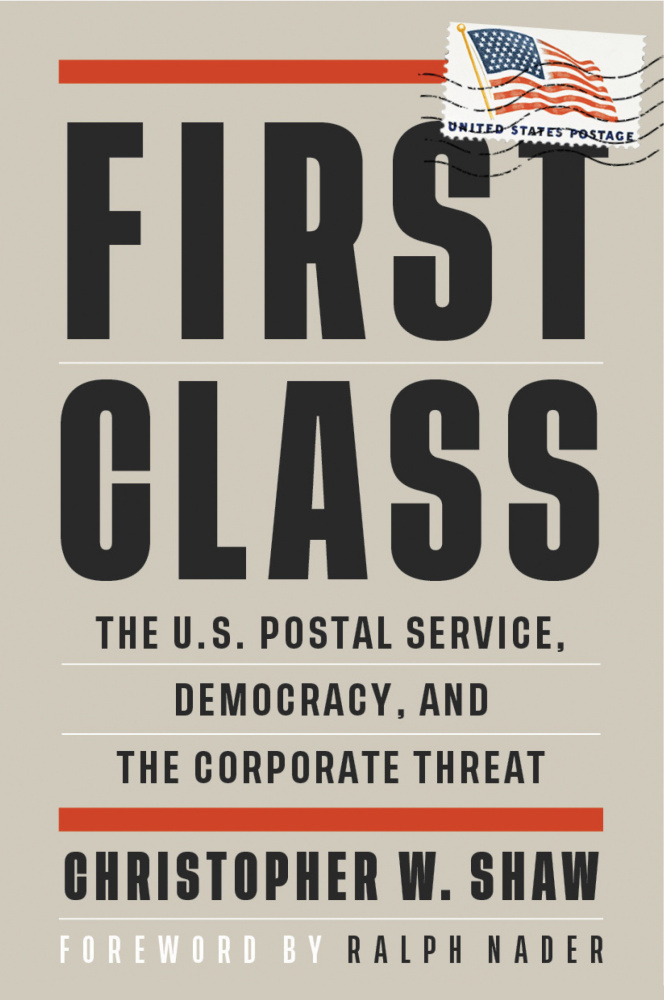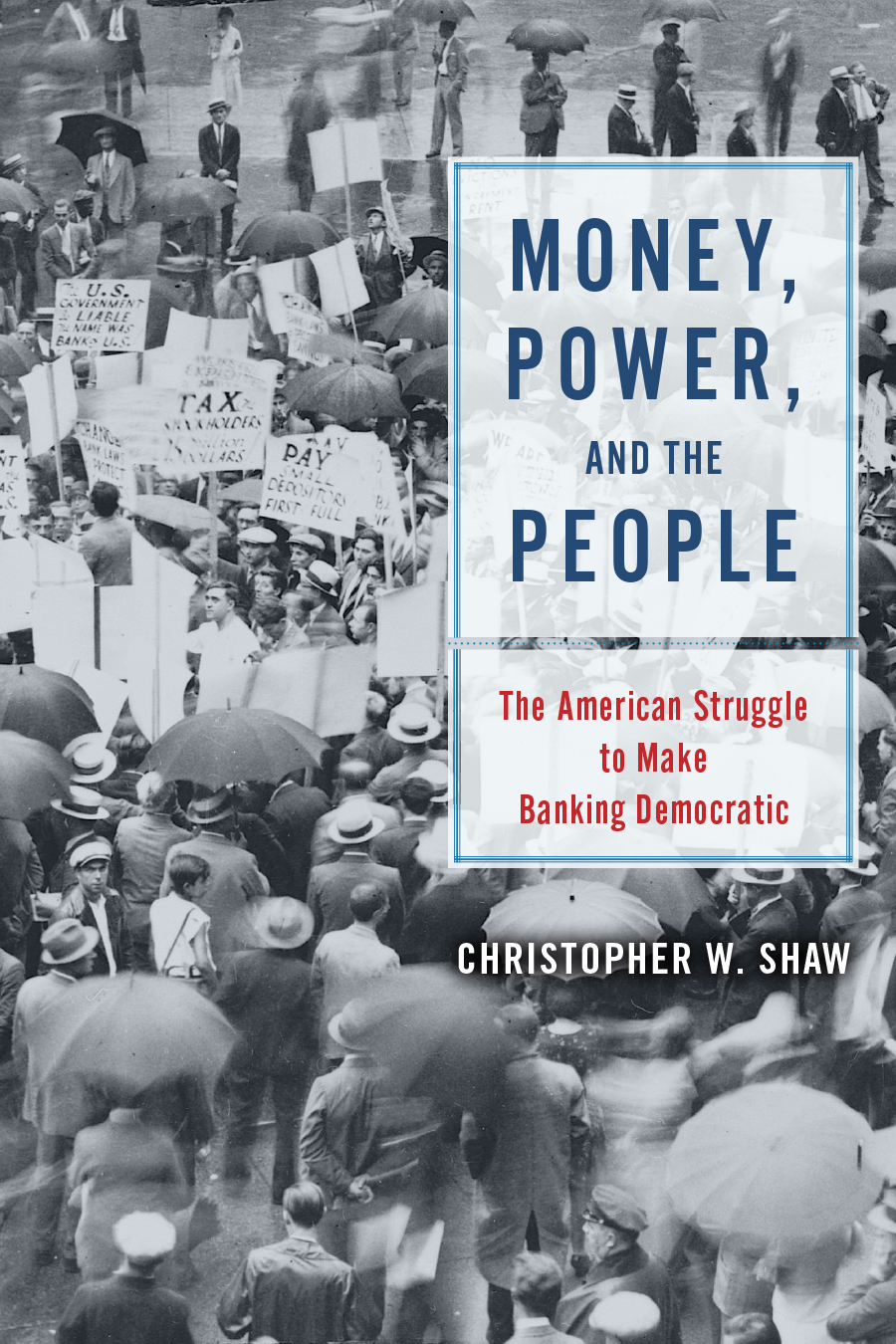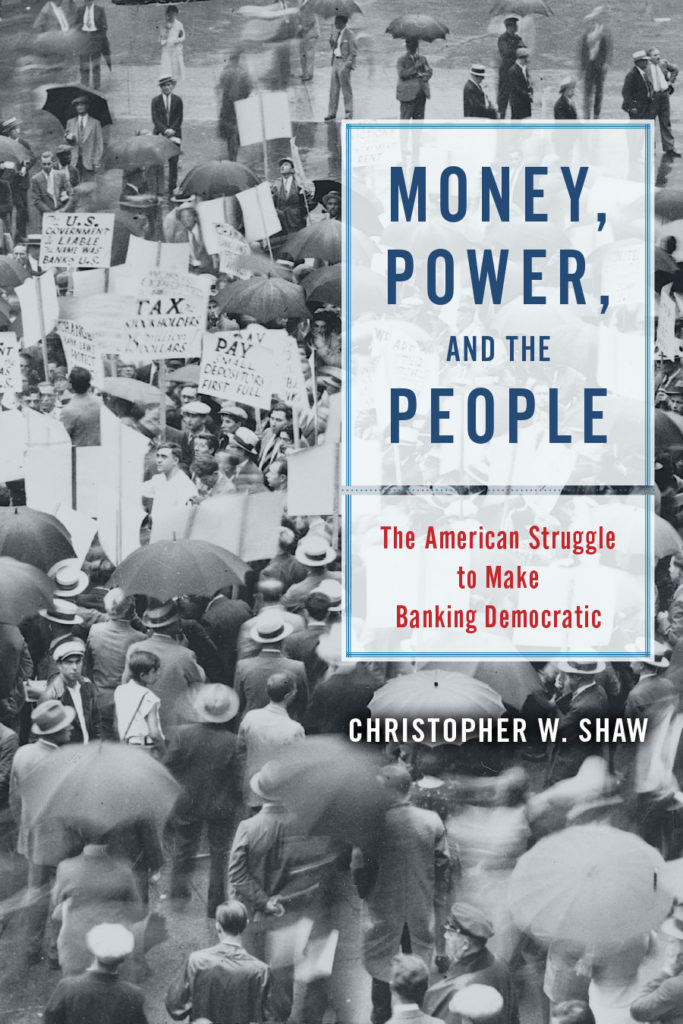Christopher W. Shaw is the author of First Class: The U.S. Postal Service, Democracy, and the Corporate Threat (City Lights Books, 2021) and Money, Power, and the People: The American Struggle to Make Banking Democratic (University of Chicago Press, 2019).


First Class: The U.S. Postal Service, Democracy, and the Corporate Threat

The fight over the future of the U.S. Postal Service is on. Political ideologues and corporate interests have long sought to remake the USPS from a public institution into a private business, and in 2020, during an election dependent on mail-in votes, the attacks escalated. This year, with mid-term elections fast approaching and the next presidential contest on the horizon, attempts to undermine the essential role of the USPS are gaining ground. Three states have already passed laws to limit voting by mail, with more poised to do the same. Postmaster General Louis DeJoy recently unveiled a “10-year plan” that openly promises slower delivery times, price hikes on postage, and reduced access to post offices, outlining the next stage of battle.
In First Class, Christopher Shaw provides an illuminating history of the U.S. Postal Service, exposing the various campaigns against it. He argues that current attacks have implications that go beyond the future of mail service, and will have grave consequences for American democracy if they are not stopped.
“The United States Postal Service has been targeted for privatization (read: dismantlement) … for decades. In his new book, Shaw convincingly explains why this would have tragic consequences for the future of democracy itself. … Shaw’s prose is fresh and accessible, and his arguments are cogent and convincing. Reading this book will give readers a new appreciation for the value of the humble post office.”
–Booklist
More praise for First Class:
“Shaw’s excellent analysis of the Postal Service and its vital role in American Democracy couldn’t be more timely. As the current postmaster general is about to implement a ten-year plan that will eliminate all airmail service, greatly reduce delivery times, and cut hours and available services at post offices, it is important to be reminded that a fully functional postal service is essential for elections, for delivery of life-saving medicines, for assistance when communities are dislocated in times of disaster and for rural community identity First Class should serve as a clarion call for Americans to halt the dismantling and to, instead, preserve and enhance the institution that can bind the nation together.”
– Ruth Y. Goldway, Retired Chair and Commissioner, U.S. Postal Regulatory Commission, responsible for the Forever Stamp
“The Postal Service is the crown jewel of the American experiment, our most efficient, trusted and beloved public service. With First Class: The U.S. Postal Service, Democracy, and the Corporate Threat, Christopher Shaw makes a brilliant case for polishing the USPS up and letting it shine in the 21st century.”
– John Nichols, national affairs correspondent for The Nation
“The ‘Save the Post Office’ movement has long needed a definitive manifesto, and now it has one. Christopher Shaw’s First Class shows how special interests and anti-government, anti-union ideologues have promoted a scarcity myth––the country can’t afford a first-class postal system––to justify cost-cutting measures like outsourcing, closing post offices and slowing down the mail. Piece by piece, an essential national infrastructure is being dismantled without our consent. Shaw makes an eloquent case for why the post office is worth saving and why, for the sake of American democracy, it must be saved.”
– Steve Hutkins, founder/editor of Save the Post Office and Professor of English at New York University
Money, Power, and the People: The American Struggle to Make Banking Democratic

Banks and bankers are hardly the most beloved institutions and people in this country. With its corruptive influence on politics and stranglehold on the American economy, Wall Street is held in high regard by few outside the financial sector. But the pitchforks raised against this behemoth are largely rhetorical: we rarely see riots in the streets or public demands for an equitable and democratic banking system that result in serious national changes.
Yet the situation was vastly different a century ago, as Christopher W. Shaw shows. This book upends the conventional thinking that financial policy in the early twentieth century was set primarily by the needs and demands of bankers. Shaw shows that banking and politics were directly shaped by the literal and symbolic investments of the grassroots. This engagement remade financial institutions and the national economy, through populist pressure and the establishment of federal regulatory programs and agencies like the Farm Credit System and the Federal Deposit Insurance Corporation. Shaw reveals the surprising groundswell behind seemingly arcane legislation, as well as the power of the people to demand serious political repercussions for the banks that caused the Great Depression. One result of this sustained interest and pressure was legislation and regulation that brought on a long period of relative financial stability, with a reduced frequency of economic booms and busts. Ironically, this stability led to the decline of the very banking politics that brought it about.
Giving voice to a broad swath of American figures, including workers, farmers, politicians, and bankers alike, Money, Power, and the People recasts our understanding of what might be possible in balancing the needs of the people with those of their financial institutions.
“In a dazzling—dare I say gripping!—historical narrative, Shaw reminds us of the surpassing importance of finance to the people it serves. Money, Power, and the People underscores how the greatest financial innovations came in the form of institutions that were demanded and designed through the will of the American people.”
-Sarah Bloom Raskin, former U.S. Deputy Secretary of the Treasury
More praise for Money, Power, and the People:
“An engaging and enlightening history of working people’s fight against big finance. Essential reading for anyone who wants to understand the evolution of banking and politics from the Gilded Age to Occupy Wall Street.”
– Christina D. Romer, former chair of the Council of Economic Advisers
“Deeply researched and energetically written, Money, Power, and the People could not be timelier. Anyone concerned about how today’s giant banks have rigged the regulatory system to become too big to fail, fueling the crisis of income inequality, will find this book a revelation.”
– Charles Postel, author of the Bancroft Prize-winning The Populist Vision
“Money, Power, and the People takes us on a fascinating journey through a time when opposition to the economic and political power of bankers and financial interests formed a cornerstone of progressive and populist politics. Accessible and comprehensive, it is a must read for those seeking to understand and confront the role of big finance in our current systemic crisis.”
– Gar Alperovitz, author of America Beyond Capitalism
“Highly recommended. In this engaging and well-researched study, historian Christopher Shaw examines what he calls ‘banking politics,’ the political force emerging from the activism of ordinary people who joined together to challenge financial institutions.”
– Choice